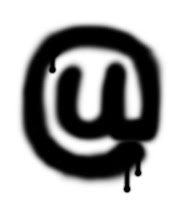 The U.S. Economy 2008
The U.S. Economy 2008 Economics Journalist Robert Kuttner on the “Most Serious Financial Crisis Since the Great Depression”: “This is the Result of Rightwing Ideology and the Political Power
of Wall Street”
Economists are skeptical over
whether any measures taken by the administration can turn around the severe slump in the housing market, subprime mortgage crisis, growing unemployment, weakening consumer spending, and the added blow of record high oil prices.
|  |
Veteran economics journalist Robert Kuttner and Robert Weissman, co-director of the corporate accountability group Essential Action and editor of
Multinational Monitor magazine speak about the U.S. economy with Amy Goodman of Democracy Now.
"This [the recession/slowdown] began and is continuing with a collapse in credit markets, and the collapse in credit markets is, in turn, the result of deregulation gone nuts." -Robert Kuttner
"...this occurs on top of thirty years of increasing insecurity on a whole bunch of fronts: the greater risk of losing your job, the greater risk of having your paycheck not keep pace with inflation, rising energy costs, rising tuition costs, rising health insurance costs. All of the things that make you middle class have become more difficult to attain in the past thirty years. So you’ve got a three-layer cake here. You’ve got this thirty-year history of flat or declining living standards for most Americans, you’ve got this terrible weakness in financial markets, and you’ve got this housing collapse." -RK
The ideology and practice of deregulation unfortunately has been bipartisan. "And if you look at the history of this, the Great Depression discredited free-market ideology, because it was such a colossal practical failure. Nobody in the 1930s could argue with a straight face that free markets worked. And so, we had a whole mixed economy, a regulatory structure invented during the New Deal, that really lasted thirty or forty years. By the ’70s, for a variety of reasons, big business had recovered a lot of the political power that it had lost in the Depression." -RK
"So now we’re learning, painfully, for a second time a lesson that we never should have had to learn twice, that markets don’t regulate themselves. Markets, left to their own devices, create grotesque inequality, ruin the environment and ruin the economy. And we’re seeing that unfold." -RK
Robert Kuttner, Veteran economics and financial journalist. He is a founder and co-editor of the
American Prospect magazine and a former investigator for the Senate Banking Committee. He is the author of seven books, his latest is
The Squandering of America: How the Failure of Our Politics Undermines Our Prosperity.
Robert Weissman on the Government's short-term response.
"A huge danger is that a short-term response—and I think these are inadequate, but not trivial—will enable policymakers and the public to look away from the much deeper problems that Bob is talking about and that must be addressed, which include the excessive financialization of the economy, not just the deregulation, but the capture of political and economic power by Wall Street over the rest of the economy, its major control over what we do." -Robert Weissman
Robert Weissman talks about deregulation (the actual rolling back of those that were in place) and a kind of non-regulation, the failure of government agencies to exercise authority that they have.
Robert Weissman, Co-director of Essential Action, a corporate accountability group based in Washington, D.C. He is also editor of
Multinational Monitor magazine.
 . . .
. . . Labels: depression, deregulation, economists, economy, financial crisis, great depression, new deal, new new deal, political power, recession, rightwing economics, u.s. economy, wall street






